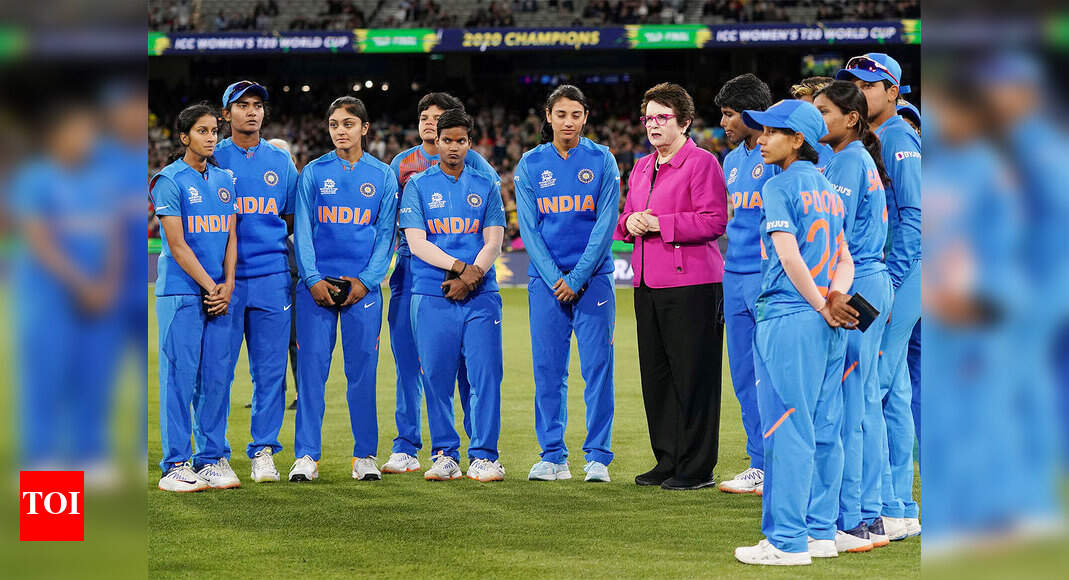In the high-stakes arena of the ICC Women`s World Cup, where every run, every wicket, and every strategic decision can tip the balance, a less conspicuous element often comes into play: time. While the scoreboard reflects runs and wickets, the clock silently dictates the pace. Recently, the Indian Women`s Cricket team found this out firsthand, incurring a penalty that, while seemingly minor, highlights the unwavering importance of discipline in professional sport.
A Dramatic Encounter, A Subtle Infraction
The fixture between India and Australia in the ICC Women`s World Cup was a spectacle. A high-scoring affair where India`s formidable total of 330 was ultimately chased down by the defending champions, Australia, with an over and three wickets to spare. Such a match is often etched into memory for its nail-biting finish and display of raw cricketing talent. Yet, beneath the surface of this dramatic chase, an infringement occurred that would lead to a post-match financial sanction for the Indian squad.
The International Cricket Council (ICC) takes the pace of play seriously, and India was found to be one over short of their target rate after all standard time allowances were factored in. This isn`t merely a trivial oversight; it reflects a broader commitment to ensuring matches flow efficiently, respecting both player welfare and the viewing experience.
Why Does the Clock Matter? The Rationale Behind Over-Rate Rules
For those outside the cricketing fraternity, a penalty for a `slow over-rate` might seem like an overly bureaucratic detail in a sport celebrated for its nuanced strategy and athleticism. However, these regulations serve several critical purposes:
- Player Welfare: Prolonged matches, especially in demanding conditions, can lead to increased fatigue and a higher risk of injury. Maintaining a consistent pace helps manage physical exertion.
- Fan Engagement: Modern sports fans expect a certain tempo. Excessive delays can lead to a fragmented viewing experience, diminishing interest, particularly for broadcast audiences.
- Fair Play: Deliberately slowing the game can be a tactical maneuver, potentially disrupting an opponent`s rhythm or extending play in fading light conditions, which could unfairly influence the outcome.
- Scheduling: International tournaments operate on tight schedules. Adhering to timeframes is crucial for logistical planning and ensuring matches conclude as planned.
“Even champions must watch the clock. In elite sports, mastery extends beyond skill to encompass an unwavering adherence to the very rules that define the game`s integrity.”
The ICC`s Uncompromising Stance: Article 2.22
The sanction imposed on the Indian team was not arbitrary. It was a direct application of Article 2.22 of the ICC Code of Conduct for Players and Player Support Personnel, which specifically addresses minimum over-rate offenses. Under this particular article, players face a five percent fine of their match fee for every over their team fails to bowl within the stipulated time. In India`s case, being one over short translated directly into a five percent reduction in match fees for the entire squad.
The process was streamlined, with India`s captain, Harmanpreet Kaur, acknowledging the offense and accepting the proposed sanction. This acceptance negated the need for a formal hearing, indicating a clear understanding and respect for the regulations. The charges were meticulously leveled by a panel of experienced officials: on-field umpires Sue Redfern and Nimali Perera, third umpire Kim Cotton, and fourth umpire Jacquline Williams, with the ultimate sanction imposed by Match Referee Michell Periera.
Beyond the Fine: A Testament to Professionalism
While a five percent match fee reduction might not cripple a team financially, the significance of such a penalty extends far beyond monetary implications. It serves as a potent reminder of the professional standards expected at the pinnacle of international cricket.
In an era where women`s cricket is experiencing unprecedented growth and global recognition, the adherence to such technical aspects underscores the sport`s increasing professionalism. It signifies that even in the heat of a World Cup battle, where emotions run high and strategies are fiercely executed, the fundamental tenets of the game — including its pace — must be respected. It`s a subtle but powerful message that discipline, in all its forms, remains a cornerstone of success.
The incident highlights that while the drama of bat meeting ball captivates audiences, the silent ticking of the clock holds its own, often overlooked, power in shaping the narrative of a match and the integrity of the sport itself. For India, it’s a lesson in time management that will undoubtedly influence their approach in future high-pressure encounters.

